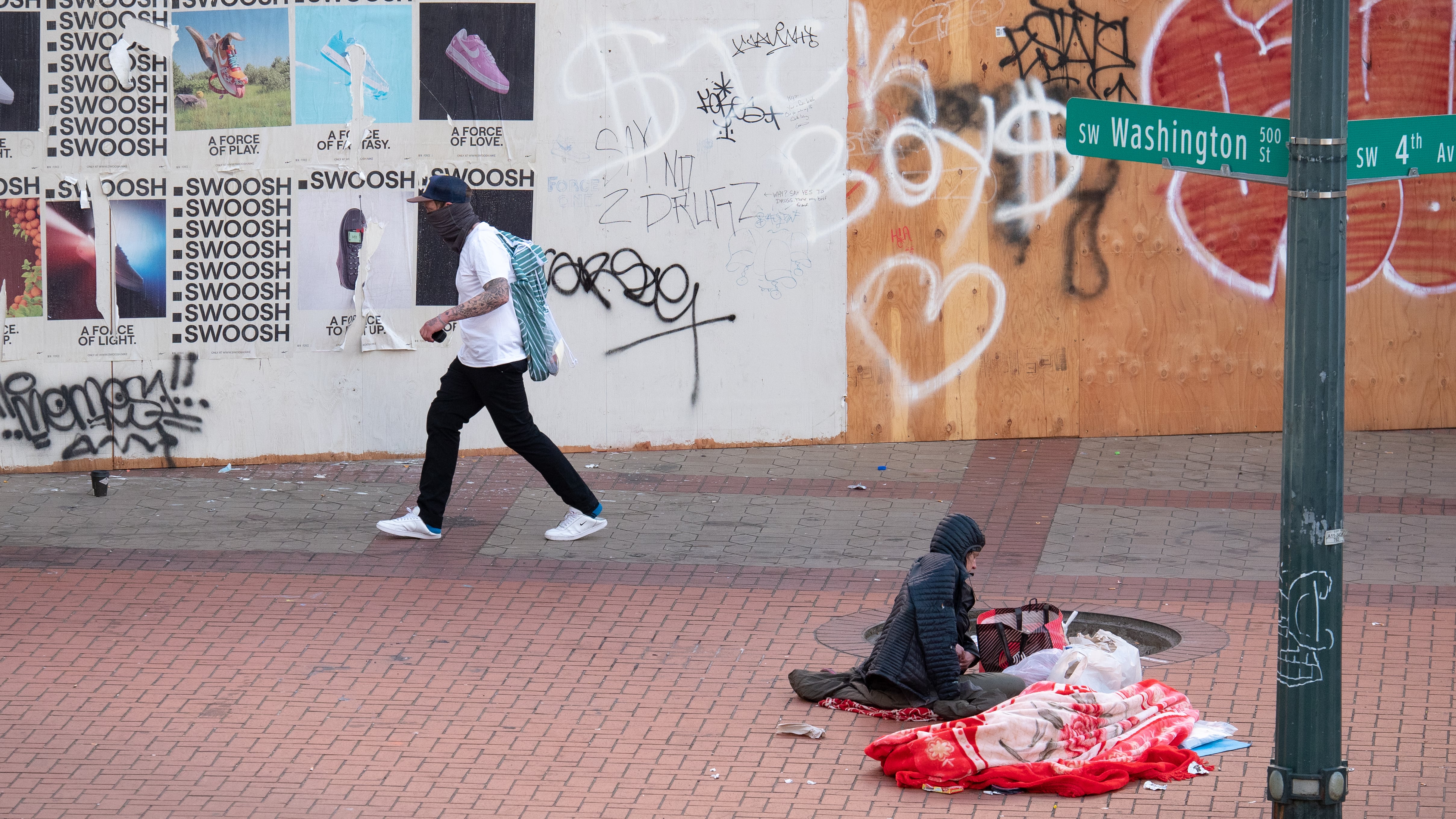Amid an alarming surge in drug overdoses in downtown Portland, many politicians in recent months have pointed the finger at Measure 110, the 2020 ballot initiative that decriminalized possession of small amounts of drugs and set aside tax money from cannabis taxes to fund drug addiction treatment services.
Results of a survey of 500 Oregonians, released this week by Portland-based DHM Research, found that most take a dim view of Measure 110 and believe it has made the addiction and homelessness crises worse.
The key takeaway from the April poll: 63% of respondents would support a tweak to Measure 110 to reinstate criminal punishments for the possession of illegal drugs but would continue funding drug addiction services with the Measure 110 formula, which directs much of the state’s cannabis tax to treatment services.
That question on the survey could be a hint that political advocacy groups are eyeing whether to launch a ballot measure that would do just that.
DHM says the poll was not commissioned by any one specific interest group.
“We have an opportunity to ask Oregonians some important questions,” says John Horvick, senior vice president of DHM. “We don’t have clients that are coming to us with particular questions, but we know that the community is interested in them.”
Measure 110, passed overwhelmingly by Oregonians three years ago, shifted the state’s approach to drug addiction by issuing citations to people found in possession of small amounts of hard drugs instead of sending them through the court system.
But reporting in the past two years shows that the state has struggled to implement the policy and hit roadblocks at nearly every stage.
Drug addiction treatment services that were supposed to receive grant funding from taxes levied on the cannabis industry didn’t see a penny for almost two years, and an audit by the now former secretary of state found the rollout of Measure 110 to be spotty, not allowing enough time for funding to reach treatment centers and hiring too few staff to do the job.
On top of the struggle with funding, Oregon law enforcement agencies have issued roughly 4,450 citations since the implementation of Measure 110, but only 189 people have completed screening for addiction treatment, according to reporting by The Oregonian.
Now poll results released this week show the toll that missteps have taken on public support.
Sixty-five percent of voters polled felt that Measure 110 has made drug addiction and overdoses in the state of Oregon worse; 63% felt that the policy has worsened the homelessness crisis.
DHM also found that voters believe addiction and mental illness were greater contributors to chronic homelessness than a lack of affordable housing.
Tera Hurst, executive director of the Health Justice Recovery Alliance, an organization that advocates for implementation of Measure 110, says the survey results shouldn’t be taken at face value, since it’s not clear who paid for the poll or the full extent of questions asked.
“Every local and national poll shows that when voters are given context about the harm and ineffectiveness of criminalizing addiction, they overwhelmingly come down in favor of the Measure 110 approach, which is to increase access to treatment for addiction instead of wasting public resources creating criminal records and lifelong barriers for people struggling with addiction,” Hurst tells WW.
More than 60,000 Oregonians have received services funded by Measure 110,” she adds, “and that number is increasing every day. They are getting housed. They are working. They are staying connected with their families.”
